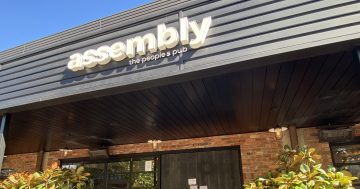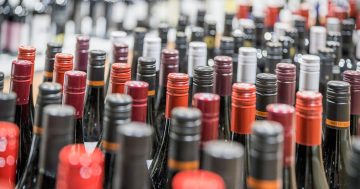After months of speculation yesterday the ACT Government unveiled the Liquor (Fees) Determination 2010 (No 1) without much fanfare.
The new fee structure seems to be trying to have a bob each way.
By making it expensive to sell booze late it pays lip service to dealing with late night violence while in practice almost certainly funneling those who don’t want to go home into the few venues left open.
On the other hand by jacking up the fees on the basis of annual liquor purchase value for the previous financial year it is giving a hand to smaller operators.
It’s worth noting that making 12am the close of trade for a standard liquor licence is also going to create “chucking out time” with all the stresses on transport and entry to the diminished numbers of late night bars.
Time will tell if this is an improvement, but it seems staggeringly unsympathetic to the leisure habits of the young.
UPDATE: Here’s what the Belconnen rock-pit The Basement thinks about the changes:
The Basement joins other licensed venues in expressing its disappointment that the ACT Government has decided to implement what it refers to as a ‘risk-based’ approach to liquor licensing that is inequitable, anti-competitive and does not holistically address the risk factors affecting the community to any level of adequacy.
The key factor underpinning the new Liquor Licensing fee structure is almost solely based on how late a business trades and it is this factor alone which determines whether the business is a low, medium or high risk to the community.
It is clear from the Office of Regulatory Services definition below that the
amount of alcohol sold is not being considered as a factor when determining the risk to the community.The Government has kept the $100,000 threshold for liquor licenses, even though the largest suppliers of alcohol to the ACT community now purchase millions of dollars worth of alcohol each year. Around this single threshold, the Government has applied a flat rate fee, leaving smaller pubs and taverns to bear a disproportionate cost in relation to their contribution to alcohol-related community issues. For instance a pub purchasing $130,000 in alcohol per year will be expected to pay the same as a club that purchases in excess of $1 million per year.
The Government has not collected or analysed any data on the link between alcohol purchase/consumption and an increased risk of anti-social behaviour – and yet the amount of alcohol consumed is clearly another factor in alcohol-related issues in the community.
The Government’s regulations also fail to recognise or address any of the other factors affecting adverse impacts of alcohol on community safety, including but not limited to:
— previous issues at a licensed premises, which would also expose
location-related problems
— previous issues in the locality additional factors such as illicit drug use which can already anecdotally be connected to certain locations (and even entertainment types); or
— pre-loading from off-license purchases.The Government has further failed to consider whether businesses have the capacity to pay for the increased fees, or recognise the potential this
inequitable cost burden has to undermine competitiveness and the continuing viability of licensed businesses. If the Greens and Liberals do not oppose these Regulations then you will definitely see a disproportionate increase in retail alcohol prices amongst licensees, a reduction in the trading hours of smaller venues creating an increase in late night patronage of problem areas such as Civic, Manuka and Kingston, and a continuing decline in the number of local pubs
and taverns in the ACT.If an increase in fees is required for cost-recovery of additional policing and services required to address the alcohol-related impacts on the community then it is fair that liquor licensees contribute. But a fair hand also needs to be given in determining the cost of this contribution to individual businesses. The Government has failed to do this and in doing so is creating an environment that will see the situation worsen rather than improve.





















